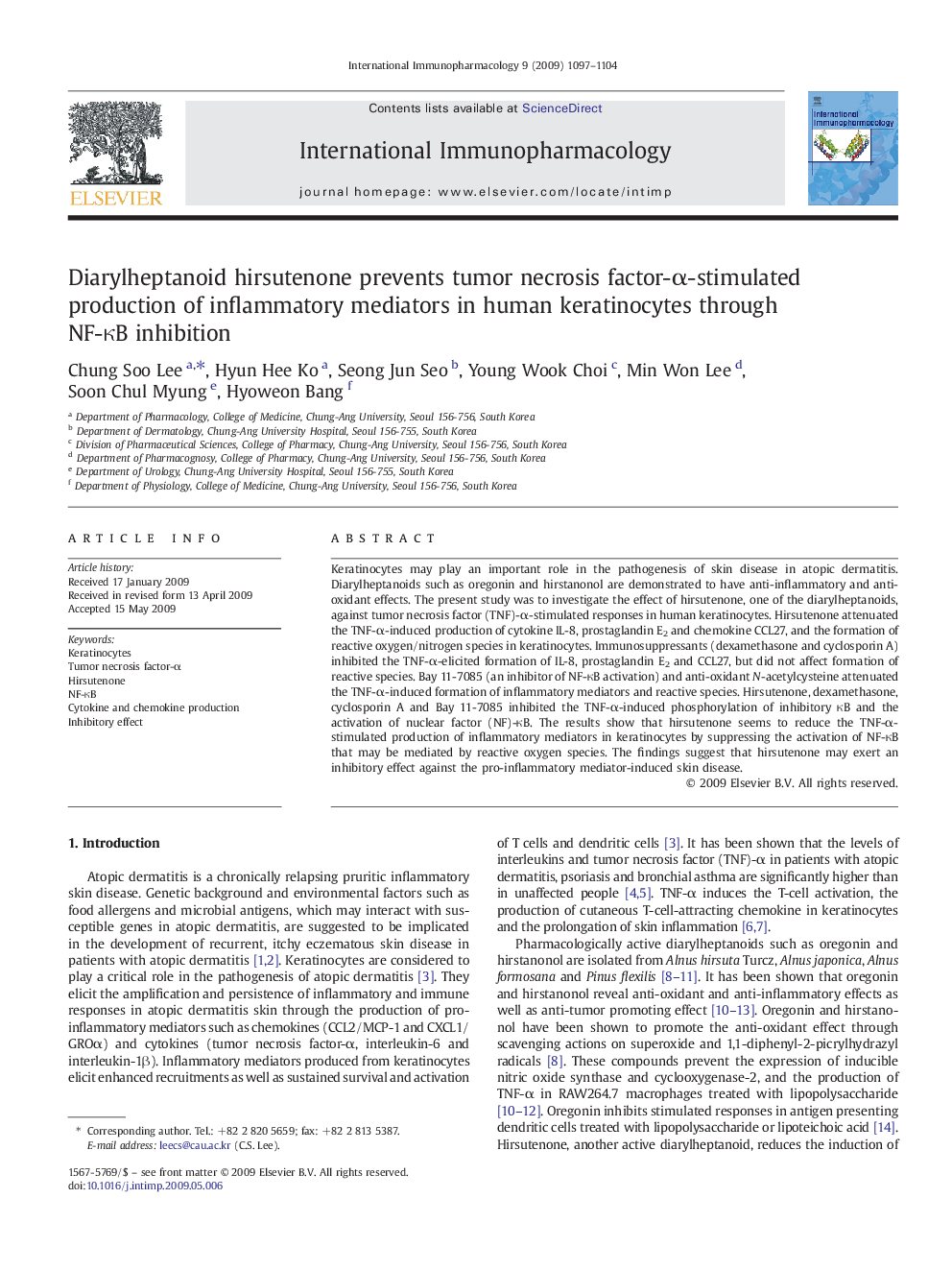| کد مقاله | کد نشریه | سال انتشار | مقاله انگلیسی | نسخه تمام متن |
|---|---|---|---|---|
| 2541790 | 1122674 | 2009 | 8 صفحه PDF | دانلود رایگان |

Keratinocytes may play an important role in the pathogenesis of skin disease in atopic dermatitis. Diarylheptanoids such as oregonin and hirstanonol are demonstrated to have anti-inflammatory and anti-oxidant effects. The present study was to investigate the effect of hirsutenone, one of the diarylheptanoids, against tumor necrosis factor (TNF)-α-stimulated responses in human keratinocytes. Hirsutenone attenuated the TNF-α-induced production of cytokine IL-8, prostaglandin E2 and chemokine CCL27, and the formation of reactive oxygen/nitrogen species in keratinocytes. Immunosuppressants (dexamethasone and cyclosporin A) inhibited the TNF-α-elicited formation of IL-8, prostaglandin E2 and CCL27, but did not affect formation of reactive species. Bay 11-7085 (an inhibitor of NF-κB activation) and anti-oxidant N-acetylcysteine attenuated the TNF-α-induced formation of inflammatory mediators and reactive species. Hirsutenone, dexamethasone, cyclosporin A and Bay 11-7085 inhibited the TNF-α-induced phosphorylation of inhibitory κB and the activation of nuclear factor (NF)-κB. The results show that hirsutenone seems to reduce the TNF-α-stimulated production of inflammatory mediators in keratinocytes by suppressing the activation of NF-κB that may be mediated by reactive oxygen species. The findings suggest that hirsutenone may exert an inhibitory effect against the pro-inflammatory mediator-induced skin disease.
Journal: International Immunopharmacology - Volume 9, Issue 9, August 2009, Pages 1097–1104